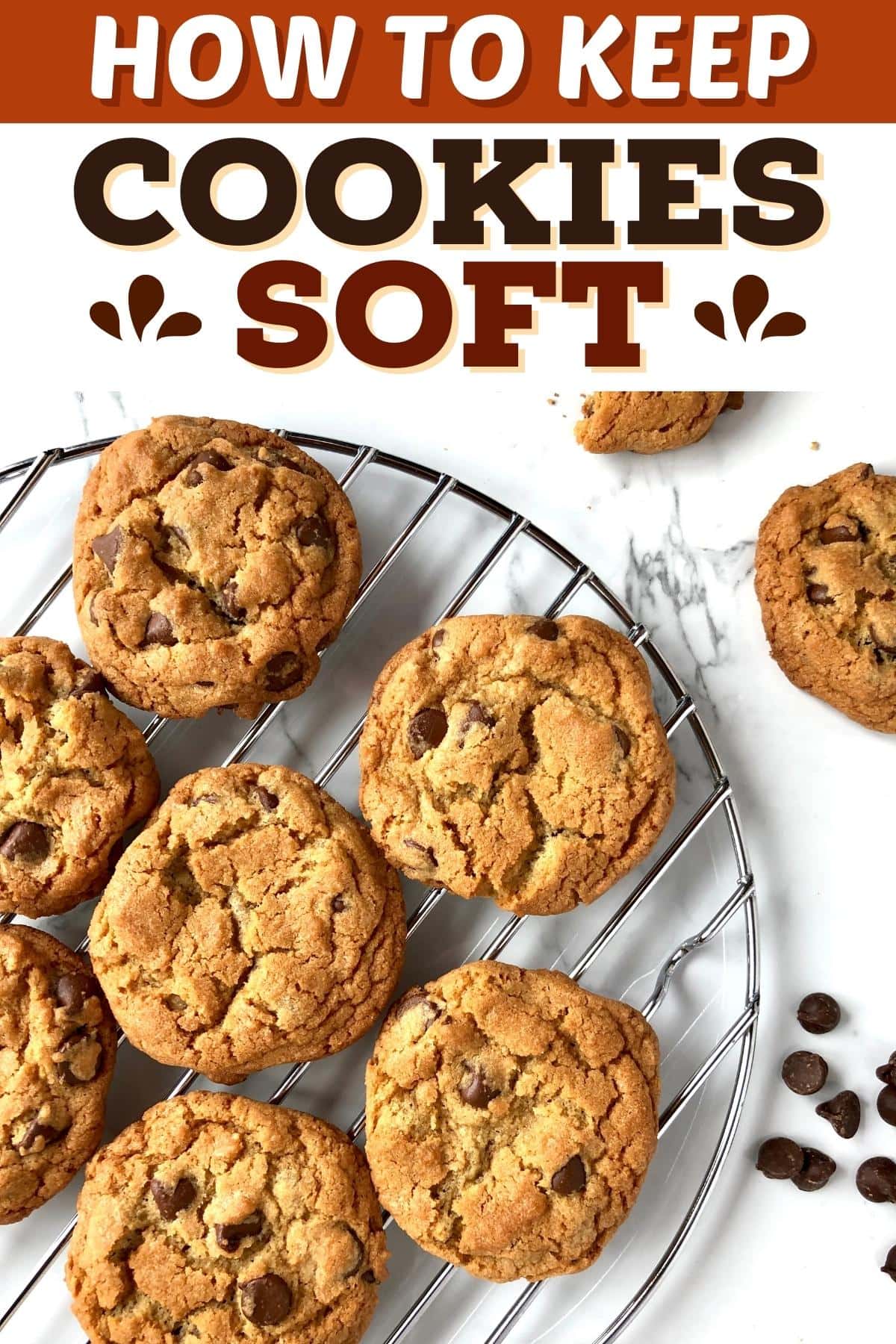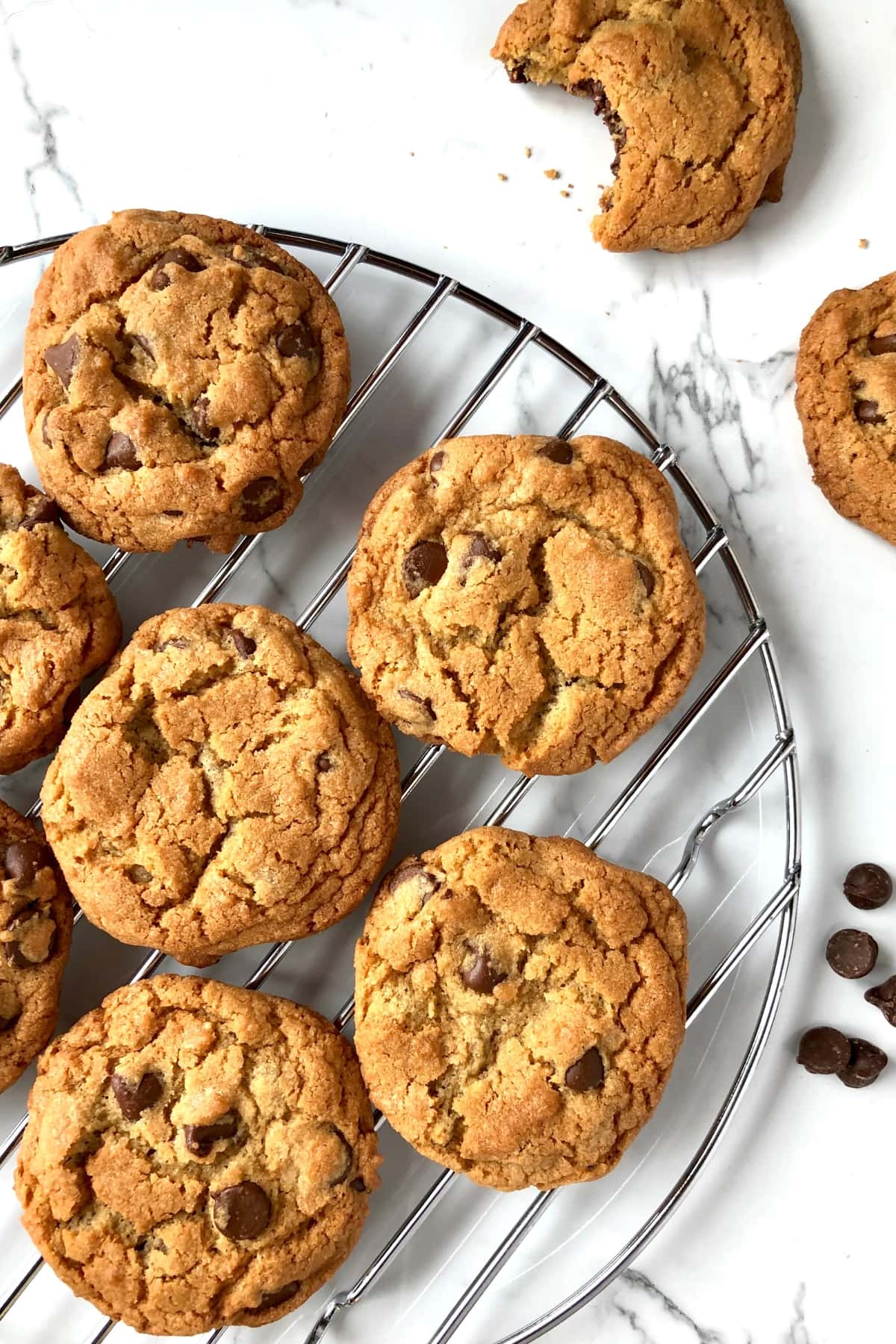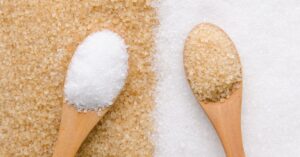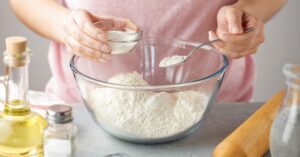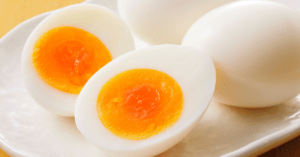Have you ever wondered how to keep cookies soft after baking so they stay nice and chewy? I have insider tips to make every bite as delicious as the first!
For example, did you know that a simple slice of bread can save a batch of hard cookies? Keeping them sealed in an air-tight container is also key.
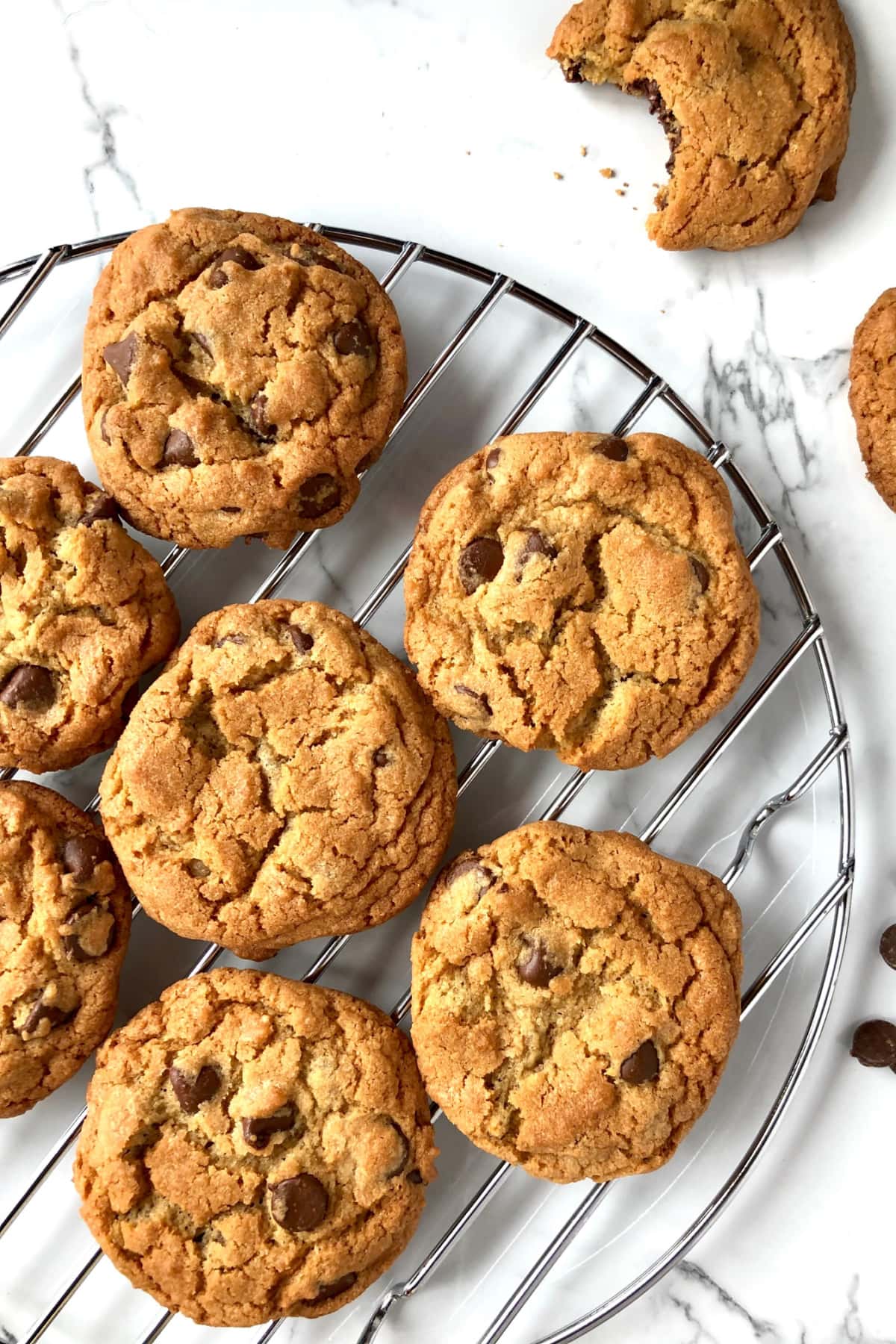
Enjoying a soft, gooey cookie fresh from the oven is pure joy. But let’s face it, the bliss can be short-lived. Cookies often turn hard and stale quickly.
Luckily, there are easy ways to extend the freshness of your homemade treats.
Read on to learn how to keep cookies soft and tasty for days!
What Makes Cookies Soft?
Three main things ensure cookies are nice and soft.
Ingredients: If you’re after soft, chewy cookies, go for ingredients that add and keep moisture.
Butter, brown sugar, and egg yolks are the keys to soft cookies. These guys are great at locking in moisture, making your cookies soft and chewy.
Cookie Dough Shape:
Another way to keep your cookies soft is by shaping them into tall mounds instead of pressing them flat.
This lets the dough stay loose. Don’t worry, your cookies will still be shaped appropriately, but they’ll have a better texture.
Under-Baked Cookies:
Yet another trick is to pull your cookies out of the oven early. Underbaking them by a minute can help keep them dense and chewy.
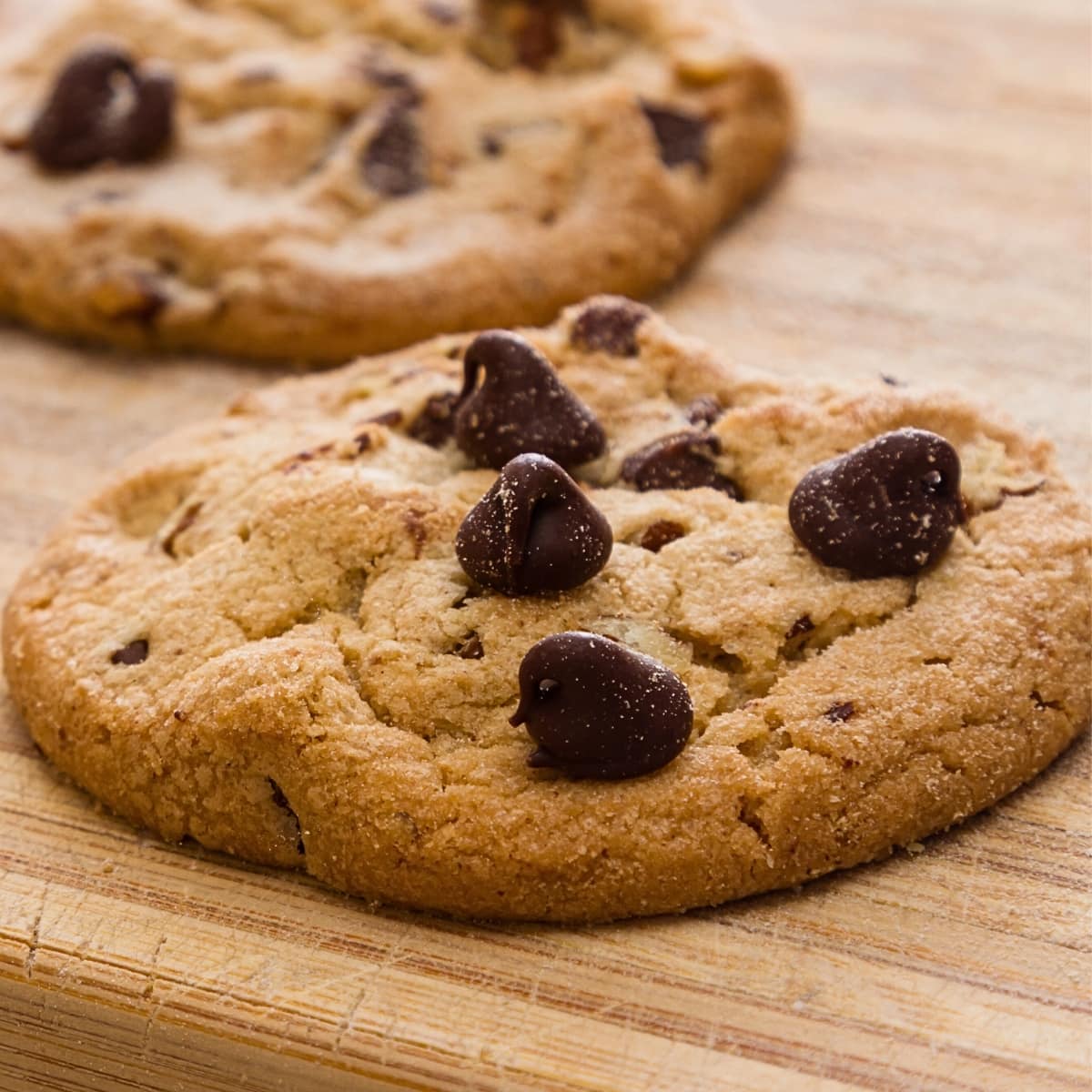
Why Do Cookies Get Hard?
Sometimes, cookies can become hard prematurely due to some baking mistakes.
Over-Baking: If cookies spend too much time in the oven, they’ll dry out. So, it’s essential to keep an eye on the timer.
Overworked Dough:
Kneading the dough too much can make cookies hard. Overworked dough leads to the formation of too many gluten strands, resulting in a tough cookie.
However, no matter how awesome they turn out, all cookies toughen up eventually.
Natural Drying:
When you pull your cookies out of the oven and let them cool, they dry out.
The moisture inside them evaporates over time. The starch in the flour then starts to harden and crystallize, making the cookies hard and crumbly.
It’s the same reason why bread, muffins, and other baked goodies get hard over time. The longer they sit around, the more stale they get.
Here’s how to solve this problem:
- Eat your cookies the same day you bake them!
- Bake only the amount you plan to serve that day.
- Keep your cookie dough in the fridge or freezer, and bake them as you need.
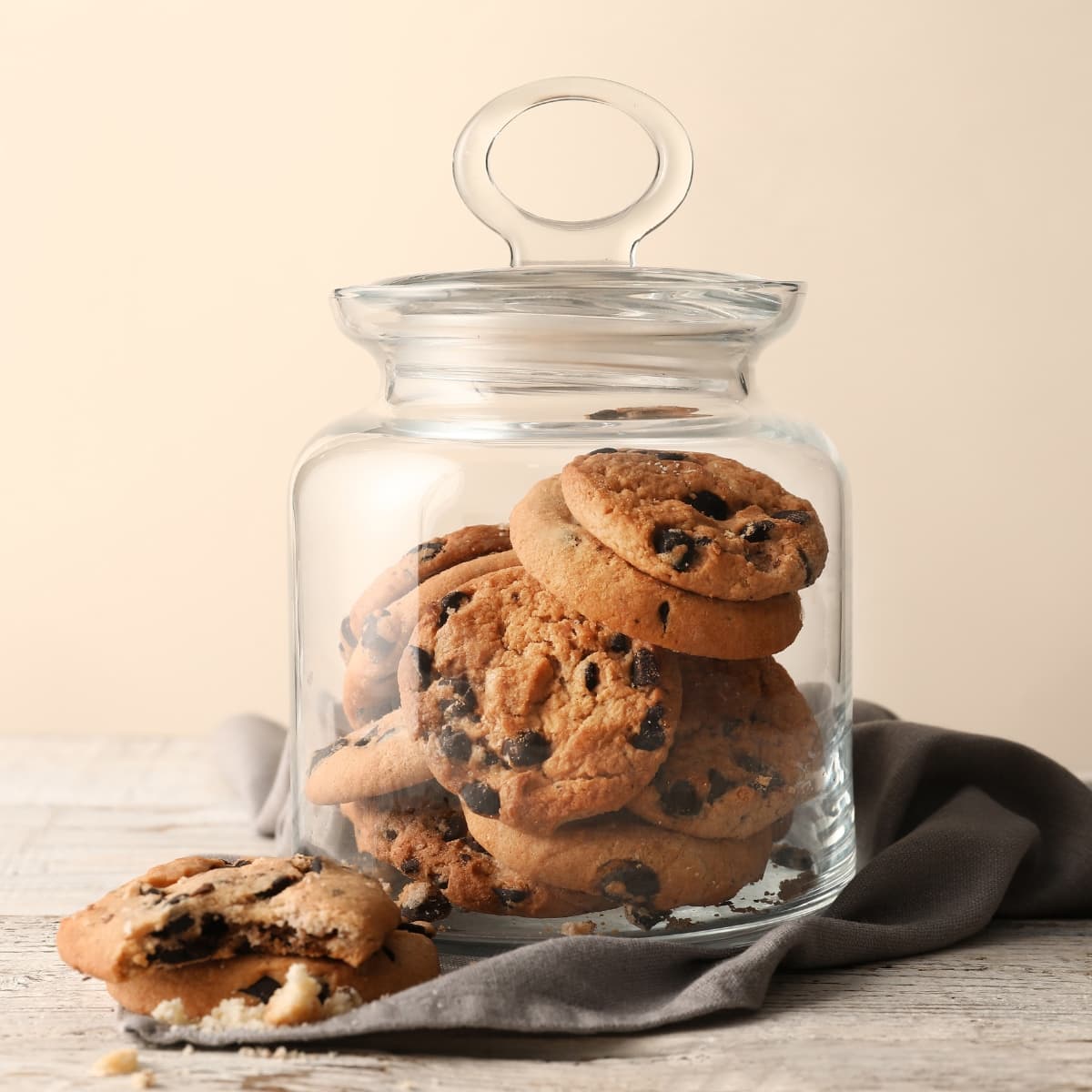
How to Keep Cookies Soft
What if you have more cookies than you can eat in a day? Or maybe you want to send some cookies in the mail?
Well, there are solutions for that, too.
Store Cookies in an Air-Tight Container
Moisture goes away when cookies are left out in the open. This is where air-tight containers or Ziploc bags come in handy.
If you’re a die-hard fan of your cookie jar, you can place a Ziploc bag inside it.
- Once your cookies have cooled down, stack them up. To keep them from sticking, put sheets of parchment between each layer.
- Next, wrap your cookie tower in plastic wrap. Then, put it in your bag or container.
- Fill empty spaces with bubble wrap to stop air from moving around.
For storage, a cool, dry place is best. Most cookies will stay soft for up to a week like this. If you’re looking at a longer timeline, move them to the fridge.
Store the Cookies with Bread
This goes hand in hand with the first tip: put a slice of bread in with your cookies.
The moisture from the bread works like a charm to keep the cookies soft. The bread does its job, giving up its moisture for the cookies.
Here’s how:
- Put a single slice of fresh bread into the container. Check on your cookies after a few hours, and the bread will have turned flat and stale!
- Once it’s stale, swap it with a fresh slice.
The same technique works with flour tortillas and apple slices. They’re great alternatives when there’s not much room in your container.
Use Brown Sugar
Brown sugar holds more moisture, which makes cookies softer and chewier. So, add brown sugar to your cookie dough, and it’ll be super moist.
Another similar option is adding a tablespoon of molasses to the dough. This gives the same moisture-rich benefits, making soft, chewy cookies.
Don’t Over-Bake
This can be subjective, but these tips should keep your cookies from overbaking.
- Always stick to the lower end of the cooking time in your recipe. You can even be daring and take them out a minute or two early.
- You’ll know they’re done when the middle is still slightly raw. They’ll keep cooking from the residual heat even after you take them out.
- Use a light-colored baking tray. Dark ones absorb more heat, making the bottom bake faster than the top.
Don’t Overwork the Dough
The saying “handle with care” applies to cookie dough, too. If you work it too much, your cookies can end up hard.
The more you mix, the more gluten forms. Gluten makes bread chewy, but we don’t want that in cookies.
So be gentle. Mix your dough just until everything’s combined. No more, no less.
Egg Yolks
Use one whole egg plus one egg yolk in recipes that call for melted butter. To balance the wet ingredients, add two tablespoons of milk.
This change-up gives you a chewier cookie.
But if your recipe asks you to cream the butter instead of melting it, keep the yolks out. Only use egg whites. This makes for a chewy cookie, too.
It might sound odd, but it’s all about your cookie dough’s fat and protein balance.
Corn Syrup
Corn syrup stays liquid at room temperature and even at high heat. You can imagine how helpful that is in creating soft cookies.
A single tablespoon in your dough can help your cookies stay fresh and soft for longer.
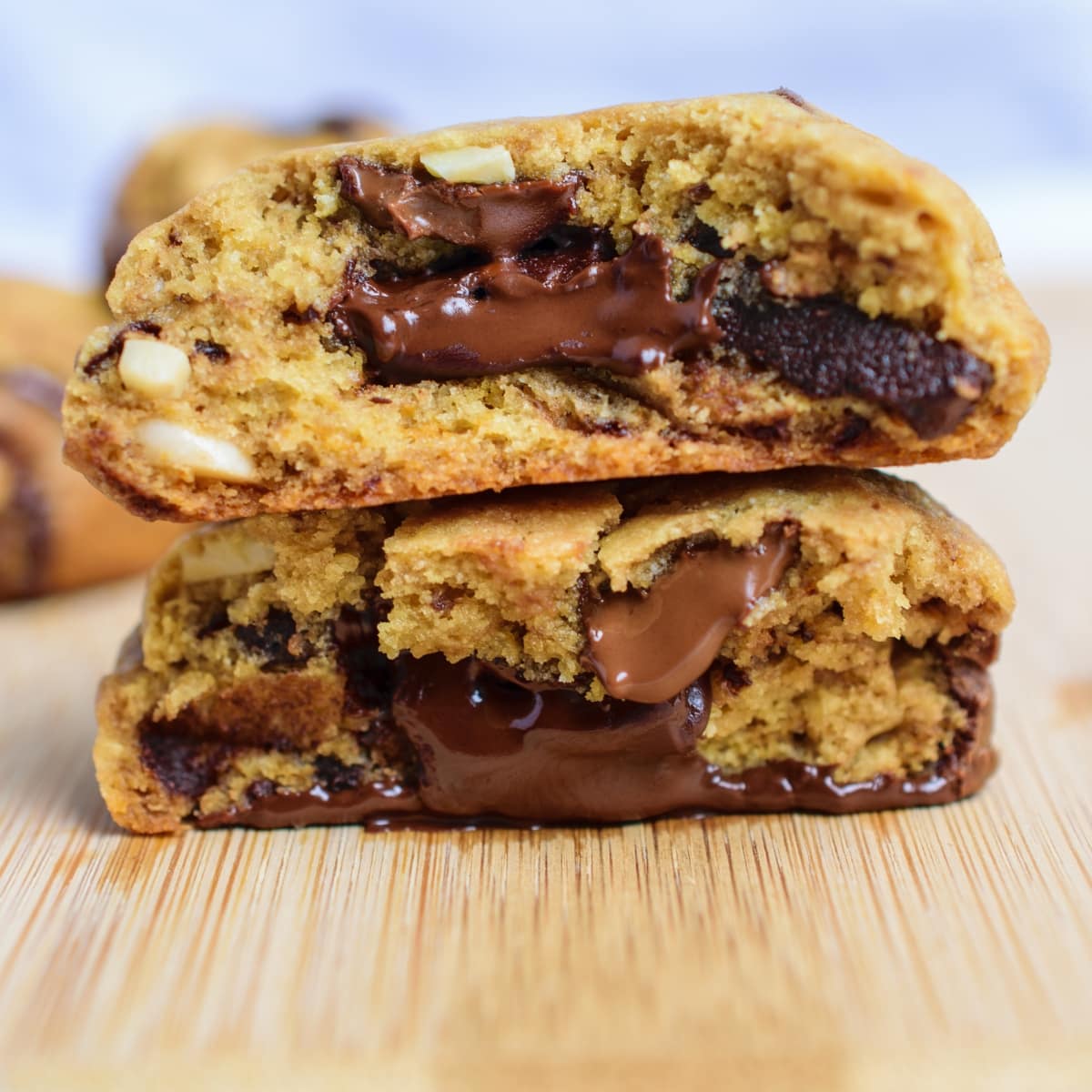
How to Soften Hard Cookies
If your cookies have turned hard, don’t fret. There are still two ways to salvage them.
In the Microwave:
- Wrap one or two cookies in a slightly damp paper towel.
- Heat them on half-power for about 10 seconds.
- Do it again if needed, but ensure the paper towel isn’t too wet.
With a Terracotta Disc:
This piece of unglazed clay can soak up and release water. They’re sold as brown sugar savers but can help with cookies, too.
- Soak the disc for 15 minutes. Be sure it’s not dripping when you put it in with the cookies.
- Wait for an hour or two, and your cookies will be softer.
Tips for Making a Chewier Cookie
Apart from the tips above, here are more tips to help you achieve softer, chewier cookies.
Limit butter. Butter is good, but too much makes cookies flat, thin, and brittle.
Add chocolate chips. As if you needed another reason to load up your cookie dough with chocolate chips! Besides making your cookies extra tasty and appealing, they also aid in keeping your cookies chewy.
It’s a win-win!
